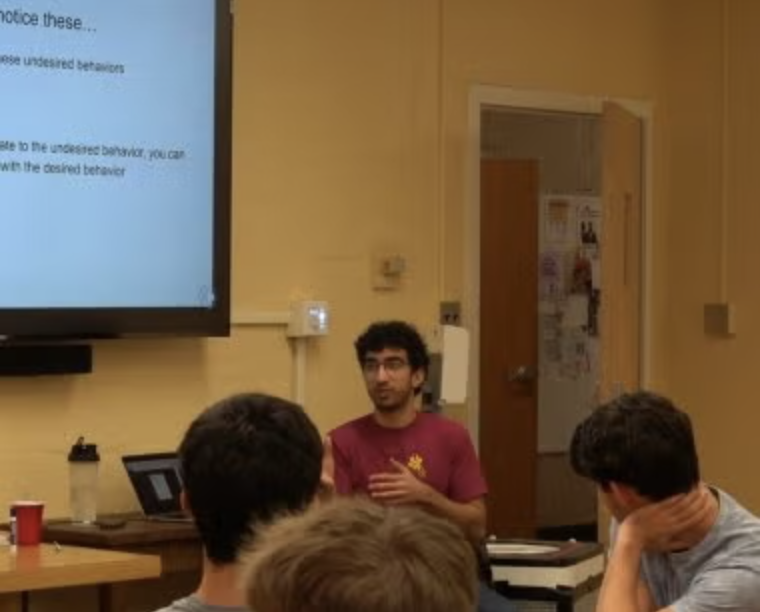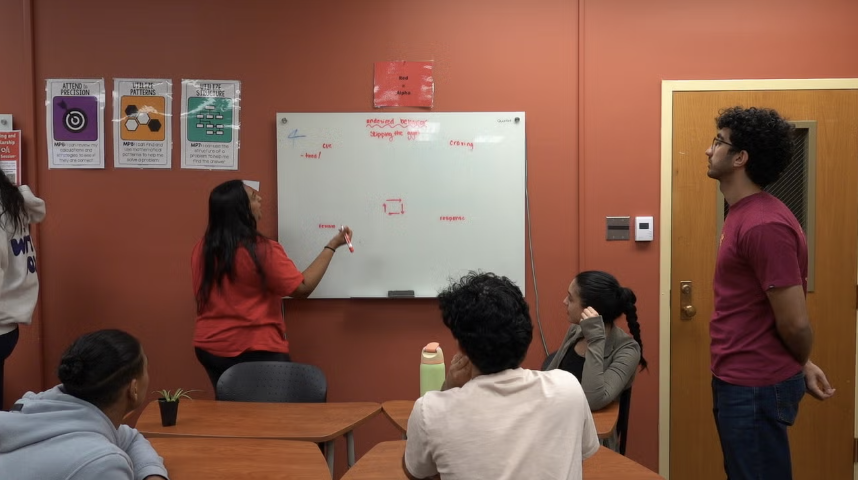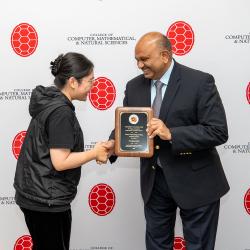Building Healthy Habits

As warmer weather approaches, many students strive to develop healthy habits and reach new goals. Whether it’s exercising regularly or making new friends, some find it challenging to cultivate the skills necessary to achieve their aspirations.
This semester, students had the opportunity to learn how to build systems of success to reach their goals in “The Psychology of Habit Building in Education: Creating and Sustaining Positive Learning Behaviors,” a student-initiated course (STIC) led by Kian Mostoufi ’25. In the weekly course, Mostoufi delivers lectures and facilitates discussions guided by students’ questions and experiences. The course is the first STIC taught in the College of Education.
“A huge misconception is that it has to be brute force and turning your life upside down to make things happen with habit building,” said Mostoufi, a Terrapin Teachers student majoring in biological sciences and minoring in secondary education. “That's not really how it works because it’s inefficient.”
Instead, Mostoufi stressed the importance of making healthy habits automatic by making them the most efficient next step.
“If I want to drink more water, I keep it within arm’s reach of me at all times–because then that is the most convenient thing to do,” he said.
A former track and field athlete, Mostoufi found that building a system of habits helped him balance schoolwork and sports. He reflected on how everyday habits resulted in improvements throughout his track career.
“I've been playing sports my whole life, so that was really where I started developing habits specifically,” explained Mostoufi. “To get to the level I was competing at, it involved daily habits–not just in running and workouts but in planning, stretching, diet and things of that nature. That allowed me to see improvements, and it was very satisfying to me.”

Mostoufi carried this habit-building strength into college, where he wanted to share his knowledge on the subject with his peers navigating their newfound freedom.
Mostoufi explained that the Terrapin Teachers program, which recruits and prepares highly skilled STEM (science, technology, engineering and math) teachers, helped him develop his skills and confidence in teaching and communicating. He hopes to continue to use these skills as he applies to dental schools.
“When you’re explaining something to a patient, they do not have all the context so you have to make sure that your care is patient-centered, the same way a classroom is student-centered,” reflected Mostoufi. “You have to treat them as a person first and make sure that they feel heard, seen and respected.”
When developing the course, Mostoufi turned to his faculty advisor, Sarah Henson-Darko, for advice. A teacher educator with the Terrapin Teachers program, Henson-Darko assisted Mostoufi in fine-tuning his course.
“It is a beautiful full-circle opportunity for Kian to take things that he’s learned and put them into action,” reflected Henson-Darko.
Mostoufi’s class consists of 18 students, who often work in teams or small groups to help develop plans to tackle their goals.
Environmental science and policy student Sasha Kreis ’25, who is working toward a goal of waking up on her first alarm every morning, noted that the class helped her build consistency in her routine.
“It has been really beneficial in habit building,” she said.
Watch: Kian Mostoufi '25 shares five tips for building healthy habits.







